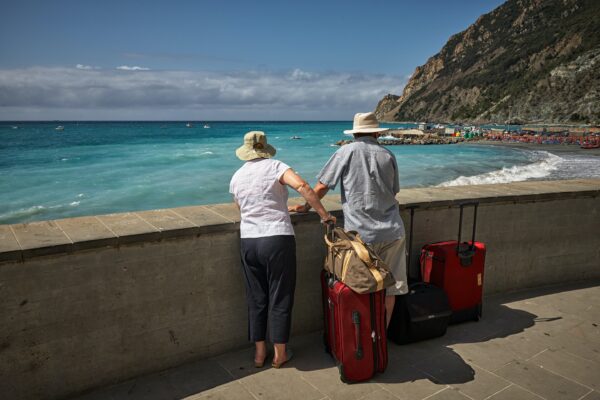For seniors enjoying the golden years of retirement, traveling abroad can be an enriching experience, providing a fresh perspective on life and exposure to diverse cultures. However, simply packing bags and hopping on a plane is not realistic. For older individuals who may encounter health challenges or other emergencies, travel requires careful consideration and preparation in advance.
Here are 7 tips to help you enjoy safe travels this summer:
- Review and update legal documents:
Before your trip, make sure to review and update your essential legal documents. Ensure that your passport is valid for at least six months beyond your planned return date. Additionally, check visa requirements for your destination country well in advance, as processing times may vary. Having valid and updated documents will prevent potential travel disruptions and save you from last-minute expenses.
- Review health insurance and Medicare coverage
Take the time to understand how health insurance works in the country you plan to visit. Each nation has its own healthcare system and regulations, so it’s crucial to know what medical services are available to tourists and how they are covered. If you are a Medicare beneficiary, review your health insurance coverage with your agent before traveling abroad. In most cases, Medicare typically does not provide coverage for medical services outside the U.S., except in rare situations, like emergencies in the closest hospital across the border.
- Obtain comprehensive travel insurance:
Investing in comprehensive travel insurance is crucial for older travelers. Medical emergencies or unexpected trip cancellations can result in significant financial burdens. Ensure your insurance covers medical expenses, evacuation, trip cancellations, and baggage loss.
- Notify your bank and credit card companies:
Inform your bank and credit card companies about your travel plans, including the destinations and dates. This will help avoid any potential issues with card transactions while abroad and reduce the risk of unauthorized access to your accounts. Some banks may have international travel services, offering travel-specific cards or fee waivers on foreign transactions.
- Set a realistic budget:
Traveling on a fixed budget requires thoughtful financial planning. A realistic budget accounts for accommodation, transportation, meals, sightseeing, and more. It might also be helpful to research the cost of living in your destination. Having a budget will allow you to enjoy your trip without worrying about spending too much money.
- Be on your guard against scams and fraud:
Older travelers can be targets for scams and fraud. Stay vigilant and avoid disclosing personal or financial information to strangers. Be cautious of unsolicited offers, especially those that seem too good to be true. Stick to reputable travel agencies and service providers to minimize the risk of scams.
- Make emergency contact information readily available:
While traveling abroad, having emergency contact information readily available is essential for your safety and peace of mind (and that of your loved ones). Keep a physical copy of this emergency contact list in your wallet or purse, as well as a digital version on your smartphone. In case of unexpected situations, having these contacts readily accessible will ensure you can easily reach out for assistance.
Remember, careful financial planning and safety considerations go hand-in-hand when traveling. Traveling abroad can be an unforgettable experience, and with careful planning, you can embark on your summer journey with confidence.
For more information, visit the U.S. Department of State’s guide on international travel for seniors. To speak to an Elder Life Group advisor, reach out today!




